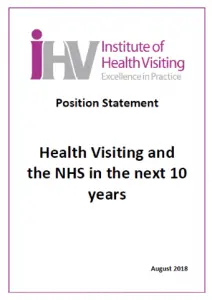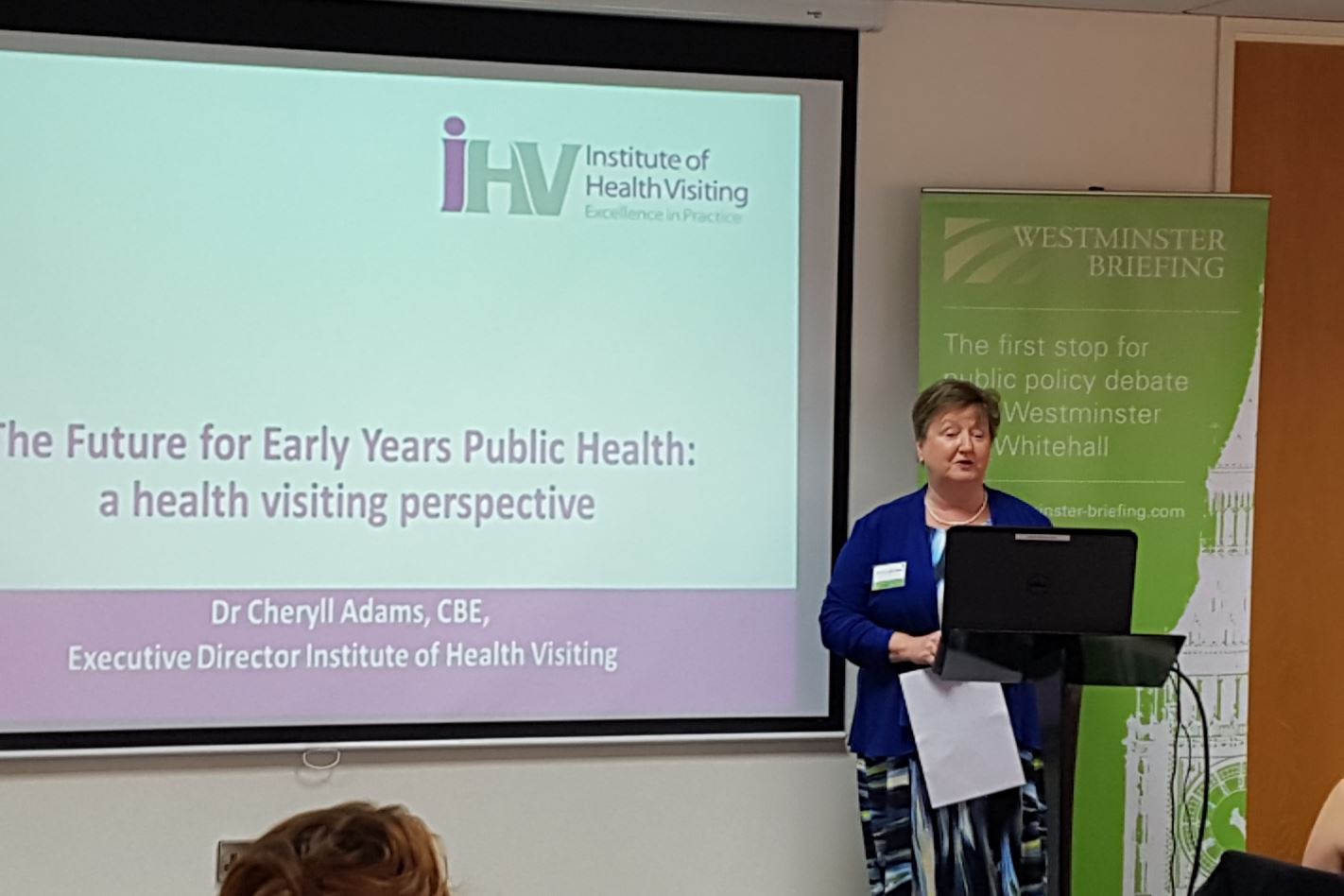The Institute of Health Visiting (iHV) has published its preferred plan for the relationship of health visiting with the NHS in the next 10 years.
As the NHS writes its new 10-year plan, with a specific focus on children, prevention and mental health, the Institute of Health Visiting has published its own recommendations for strengthening health visiting services alongside.
Dr Cheryll Adams CBE, Executive Director, Institute of Health Visiting said:
“Health visitors have a vital role in delivering early preventative services for infants and children, and in supporting parents through the emotional challenges of early parenthood. Unless there is a plan to strengthen health visiting services alongside the new NHS 10-year plan, it will be impossible to deliver on many of what we expect to be its worthy ambitions. We hope that our rationale, and the recommendations in our new position statement, will be taken seriously by those writing the plan.
Dr Adams continued:
“Moving health visiting commissioning completely from the NHS to local authorities, in October 2015, has created many challenges for the quality of services that health visitors have been able to deliver, and for the essential relationships that health visitors need to have with NHS partners. Part of the challenge has come from cuts to public health budgets, but it’s more complex than that – the loss of close relationships with NHS services, in particular with general practitioners, has also been very unhelpful.
“Three years of the local authority commissioning model has seen a loss of around 20% of the workforce and worryingly high levels of grade mix. Therefore, we are proposing a new joint NHS/Local Authority governance/commissioning model – this we hope will avoid such challenges for services to our most vulnerable members of society in the future.
Further recommendations
“Other recommendations include that every family should have at least nine universal contacts. This requires new investment into the profession, but that will be more than offset by savings in preventable treatment costs in later life. Nine core universal contacts being delivered by health visitors is becoming the norm for Welsh families, with Scottish families receiving eleven! This is based on the evidence of what can be achieved by providing robust health visiting services during the very early years – and English children shouldn’t be disadvantaged.”
Dr Adams concluded:
“Our position statement makes clear what we believe needs to happen to improve outcomes for children through strengthened health visiting – with a renewed focus on children’s services, improving mental health and prevention and reducing inequalities in the essential early years period. We are circulating it widely to decision makers and those concerned about giving every child the best start in life.”





